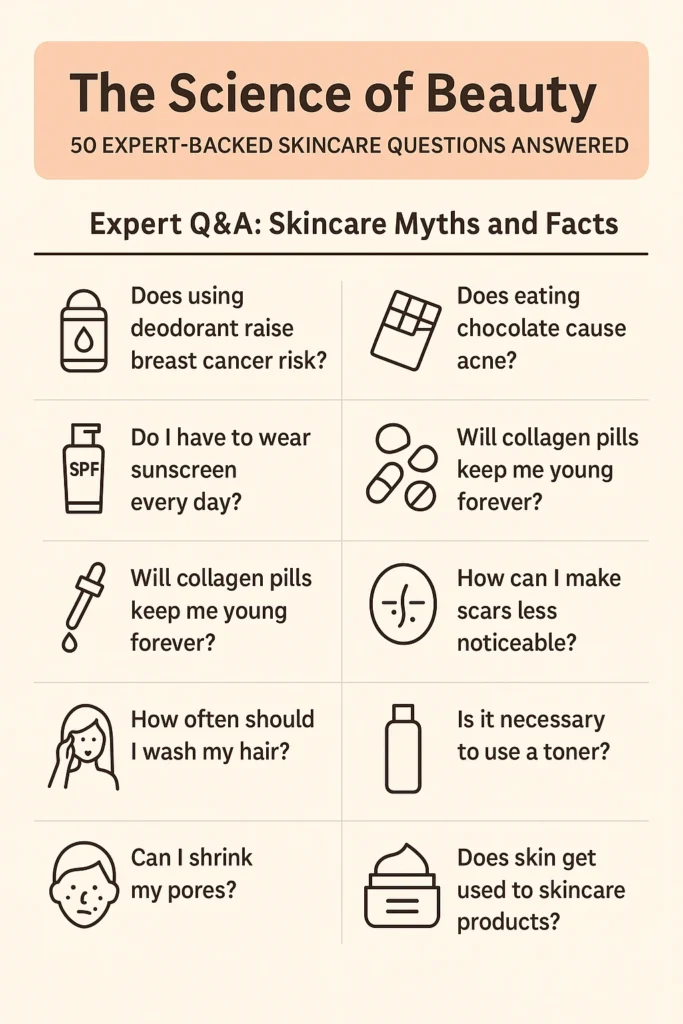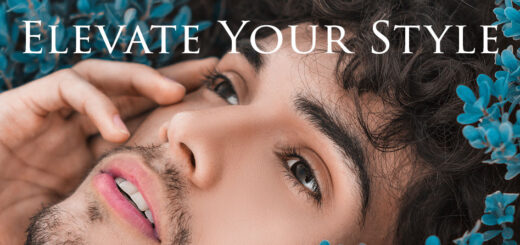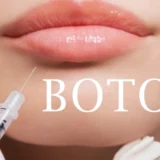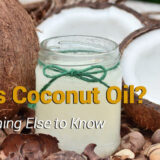The Science of Beauty – 50 Expert Skincare Answers

The science of Beauty isn’t a universal concept. It is monolithic and influenced by many factors, such as personal likes, cultural customs, individual preferences, media influence, etc. These elements mix to shape beauty standards. The science of beauty helps us cut through myths and look at skincare through a more informed lens.
With so many questions about anti-aging, hydration, sunscreen, and ingredients, it’s easy to feel overwhelmed. But when you apply the science of beauty, you understand what truly works for your skin.
This article breaks down 50 skincare and beauty questions, each backed by expert insights and scientific research. This is your go-to for honest, fact-based answers that can transform your routine, each backed by expert insights and scientific research.

Expert Q&A: Skincare Myths and Facts
1- Does using deodorant raise breast cancer risk?
Researchers have looked into the components of deodorants, such as aluminum and parabens. However, they haven’t found any proof that these ingredients lead to cancer. The science of beauty confirms that your daily deodorant isn’t something to fear.
2- Does eating chocolate cause acne?
Your diet plays a vital role in your skin’s condition, but there’s no evidence that chocolate causes acne. The science of beauty discloses that eating habits, genes, and how you care for your skin are the main reasons behind acne.
3- Do I have to wear sunscreen every day?
The Sun’s UV rays can damage your skin, speed up aging, and boost your risk of skin cancer. The science of beauty recommends applying sunscreen daily, even on cloudy days.
4- What’s in my face serum?
The science of beauty explains that hyaluronic acid, peptides, and vitamins are ingredients in face serums that target specific skin issues. Check the list of ingredients to see what each serum offers and how it matches your skin’s needs.
5- Will collagen pills keep me young forever?
Many believe that consuming Collagen pills halts aging. Studies indicate that the pills are not magic and can only give the skin more bounce and hydration. The science of beauty reminds us to eat right and maintain our skincare to preserve skin freshness.
6- How can I make scars less noticeable?
The science of beauty supports treatments like microneedling, chemical peels, and lasers. Using silicone gels or sheets gradually smoothed and lightened the scars.
7- How often should I wash my hair?
How often you wash your hair depends on your hair type, scalp health, and daily activities. People with oily scalps or who sweat a lot might need to wash their hair daily. Those with dry or curly hair might benefit from less frequent washing to keep their natural oils. The science of beauty says one size doesn’t fit all here either.
8- Is it necessary to use a toner?
Toners are used to balance skin pH after cleansing. Today’s cleansers don’t disrupt pH balance to that level, so toners aren’t always needed. A toner can add value if it moisturizes or contains helpful ingredients, but not everyone needs to use one.
9- Can I shrink my pores?
Your genes determine the size of your pores, and you cannot reduce them. However, keeping pores clean and using products containing salicylic acid or retinoids can make them appear smaller. The science of beauty teaches us to manage expectations with realistic, science-supported solutions.
10- Does skin get used to skincare products and stop working overtime?
No, your skin doesn’t become immune to skincare products. However, results may plateau once your skin has improved or stabilized. The science of beauty clarifies if you’re no longer seeing progress, it may be time to adjust your routine based on new goals or seasonal changes, but not because your skin has “gotten used to” the product.
11- Can stacking multiple skincare products boost their impact?
Mixing products can address various skin concerns, but adding more doesn’t guarantee improved outcomes. Products may become less effective or cause skin irritation if used excessively. Skin streaming is an intelligent choice.
12- Is it safe to use expired cosmetics?
It’s not a good idea to use cosmetics past their expiration date. Over time, products can degrade, leading to a decline in efficacy or potential bacterial growth, which can cause skin irritation or infections.
13- Do I need different skincare products for morning and night?
Yeah, Morning Skincare aims to shield your face with antioxidants and sunblock. Skin-repairing ingredients like retinoids are emphasized in nighttime practices. According to the science of beauty, tailoring your routine to the time of day helps maximize results and support your skin’s natural rhythm.
14– Does drinking more water improve skin hydration?
Increasing your water intake doesn’t zap your skin of moisture. The science of beauty shows us that topical care matters for overall health. What affects skin hydration is using moisturizers containing humectants like hyaluronic acid and glycerin.
15–Do expensive skincare products work better than drugstore ones?
Sometimes this isn’t true. Many products sold at pharmacies contain the same active ingredients as high-end brands. A product’s effectiveness lies in its contents, not its price tag. Scanning the ingredients instead of the brand name is a wiser move.
16– Is “oil-free” skincare better for acne-prone skin?
Some oils can block your pores. However, if you are prone to acne, not all oils are harmful. Squalane and other non-comedogenic varieties are pretty awesome. Instead of heavy, slick, choose lightweight, non-greasy formulations guided by the science of beauty.
17– Does your skin “get used to” skincare products, making them less effective over time?
No, skin doesn’t build resistance to active ingredients. If a product seems to stop working, it could be ’cause the weather changed, your skin got used to it, or maybe you need stronger ingredients over time.
18– Should I avoid parabens in skincare?
People have argued a lot about parabens, but they’re safe and work well as preservatives. Research hasn’t found any solid proof linking them to health problems at the concentrations used in cosmetics. The science of beauty supports their safety in approved amounts.
19– Can stress cause breakouts?
Yes, stress can cause breakouts. It pushes your body to make more cortisol, which makes more oil and redness and can lead to breakouts. Managing stress through sleep, exercise, and relaxation techniques can help.
20– Does exfoliating every day give you glowing skin?
Over-exfoliation can harm your skin’s protective layer, causing irritation and making your skin more sensitive. Exfoliating with gentle acids like AHAs or BHAs around 2 to 3 times a week is way better. It helps the skin get fresh without scrubbing it too much.
21– Is sleeping with makeup on really that bad?
Leaving your makeup on while you snooze can clog up your pores, cause breakouts, and contribute to premature aging. Make sure to follow the cleansing ritual before going to bed.
22- Can diet influence wrinkles and aging?
Diet plays a big role in skin aging. For example, excessive sugar intake (glycation) damages collagen, which in turn causes wrinkles. Fruits and vegetables with antioxidants, vitamins, and healthy fats help the skin’s health by keeping it looking youthful and supple.
23– Does wearing makeup every day damage your skin?
Make-up is not bad for the skin as long as it is washed off properly at the end of the day. Choose non-comedogenic products and stick to stuff that won’t clog your pores.
24– How does hyaluronic acid work in skincare?
Hyaluronic acid is a humectant. This means it pulls water to hydrate skin, helping it stay moisturized, supple, and plump. It works best when applied to damp skin and sealed with a moisturizer to prevent evaporation.
25– Can hyaluronic acid be used on oily skin?
Definitely! Hyaluronic acid is super light and non-greasy; it’s perfect for oily skin types. It adds moisture without clogging up your pores.
26– What causes hair fall, and how can I prevent it?
Some of the most common causes would be genetic predisposition, hormonal changes, stress, inadequate nutrition, and chemical damage to hair. To avert hair falls, eat protein and iron; reduce the use of direct heat styling; and use sulfate-free shampoos and mild soaps.
27– Can hydration improve skin elasticity?
Yes, hydration is vital for keeping skin elasticity, which can occur by sipping lots of water and slathering on moisturizers. Ingredients like hyaluronic acid, glycerin, and ceramides are super good for upping moisture and helping out your skin’s outer layer.
28- What is the difference between Botox and fillers?
Botox relaxes muscles and diminishes wrinkles, while fillers plump up the skin to reduce the appearance of wrinkles. Botox reduces the appearance of wrinkles such as those on the forehead or around the eyes, by making the muscles chill out for a bit. Fillers plump up cheeks and lips to fill up wrinkles and restore the fullness that has been lost. The science of beauty distinguishes between muscle-targeting treatments and volume-restoring ones for different results.
29– Is micellar water enough to cleanse the skin?
Micellar water is good for light cleansing, but if you wear sunscreen or makeup, it’s best to follow up with a water-based cleanser for a deeper clean.
30– Can over-moisturizing harm the skin?
Yes, slathering on too much moisturizer can block your pores and cause breakouts if you have oily skin. Pick a moisturizer that suits your skin type and avoid heavy, occlusive products.
31– What’s the best way to hydrate extremely dry skin?
Clean your face with a hydrating cleanser and apply hyaluronic acid while your skin is still wet. Lock in the moisture with a cream containing ceramides and shea butter. Overnight masks and face oils can give your skin an extra boost of hydration.
32– Do scalp massages help with hair growth?
Oh yes! Massaging your scalp boosts blood flow, which can help your hair grow stronger when combined with the use of a nourishing hair oil regularly.
33– Is it necessary to change your skincare routine with the seasons?
Yes! In winter, you may need heavier moisturizers, while summer calls for lightweight products in gel form. Tweaking your routine helps prevent your skin from getting too dry or from excess oiliness.
34– Do anti-aging creams work instantly?
No. Most anti-aging agents, such as retinoids, peptides, and niacinamide, need several weeks to months to show visible results. The science of beauty confirms that patience and consistency are essential for anti-aging products.
35– Can a good skincare routine replace Botox or fillers?
No, skincare helps reduce aging signs, but it can’t substitute for in-office treatments like Botox or fillers. These treatments work more to target your wrinkles.
36– Does sleeping on your side cause wrinkles?
Yes! Sleeping puts pressure on the skin, which can lead to sleep wrinkles over time. Using a silk pillowcase and sleeping on your back might help lessen this effect.
37– Is a separate night cream necessary, or can I use my day moisturizer?
Many night creams have richer ingredients such as peptides and retinoids to support repair during sleep. However, if your daytime moisturizer provides enough hydration, you probably won’t need a separate one for the night.
38– Is coconut oil the best oil for hair growth?
Coconut oil helps minimize protein loss and prevents hair damage, but other oils also benefit hair health. Castor oil and argan oil, for example, are good for hair too.
39- Are sulfate-free shampoos better for all hair types?
That’s not always the case. Shampoos without sulfates are gentler and work best for people with dry or curly hair. However, if you have an oily scalp, you might need shampoos with mild sulfates to clean your hair.
40– Are hot oil treatments beneficial for hair?
Yes! Hot oil treatments nourish dry hair, reduce frizz, and maintain a healthy scalp. Warm oils penetrate best and seal in moisture when used in a hot oil treatment.
41- Are Botox and fillers safe?
Botox and fillers are considered relatively safe when performed by a trained practitioner. Incorrect technique and unregulated products may lead to side effects such as bruising or asymmetry, and in very rare cases, serious complications like vascular occlusion with fillers.
42- Can Botox and fillers be reversed?
Botox stays in your body for a while and will eventually leave the system, but there’s no immediate reversal. You can dissolve fillers made of hyaluronic acid (HA) with hyaluronidase if needed.
43- Can facial exercises or face yoga replace Botox?
Face exercises claim to firm up muscles and smooth out wrinkles, but cannot replace Botox. Sometimes, instead of reducing the dynamic wrinkles, doing the incorrect moves over and over might cause more.
44- Are lip-plumping glosses a safe alternative to lip fillers?
Lip-plumping glosses use ingredients like cinnamon, menthol, or peptides to temporarily swell lips by increasing blood flow. They make your lips look fuller for a short time, but don’t add any long-term volume like dermal fillers.
45- Do dermal fillers stretch the skin permanently?
No, when you use dermal fillers correctly, they don’t permanently stretch your skin. They get back to normal as the filler goes away. However, excessive use of fillers may lead to skin laxity.
46- Is there a natural alternative to Botox?
You won’t find a cream that works just like Botox, but some ingredients that might help reduce fine lines are peptides, bakuchiol, and Argireline (sometimes known as “Botox in a jar”). However, they won’t relax your muscles like Botox can.
47- Can Botox prevent excessive sweating (hyperhidrosis)?
Absolutely! Botox is FDA-cleared to stop the signaling that activates sweat glands when profusely sweating. It is often used on their underarms, hands, and feet.
48- Can Botox lift the eyebrows or the corners of the mouth?
When applied in specific areas, Botox can provoke a gentle elevation in eyebrows or hoist the smile corners if they’re sagging, offering a fresher look.
49- Do fillers help with dark circles under the eyes?
Yes, under-eye fillers with hyaluronic acid, can reduce under-eye dark circles. Yet, if pigmentation is the cause, other treatments like skincare or lasers may be more effective.
50- Can stopping Botox make wrinkles worse?
No, stopping the Botox will not worsen any wrinkles. They will get back to their natural state as the Botox effects wear off. The science of beauty reminds us that any “worsening” is usually just a perception after seeing smoother skin for so long.
Sum Up
The world of skincare, hair care, and anti-aging treatments is full of myths and misconceptions, but when you turn to the science of beauty, the noise clears. From the role of hyaluronic acid in hydration to the truth about Botox and fillers, expert-backed advice empowers you to revolutionize your regimen.
Whether you’re exploring anti-aging solutions, dealing with hair concerns, or looking for the best skincare routines, let the science of beauty be your trusted guide in achieving glowing, healthy, confident skin.
Disclaimer:
The information shared above is purely informative and not a means to medical or dermatological advice. Always consult a qualified skincare professional or dermatologist before starting a new treatment or procedure.
Keep posting your skincare and beauty questions, and stay tuned for more expert-backed insights!























